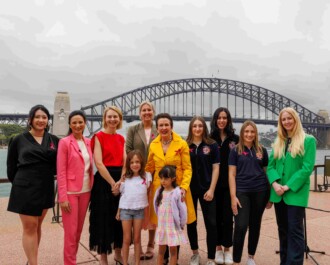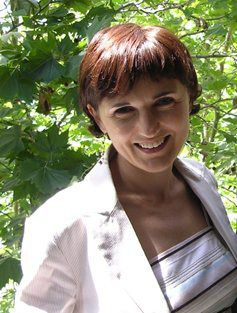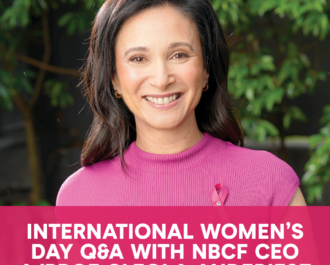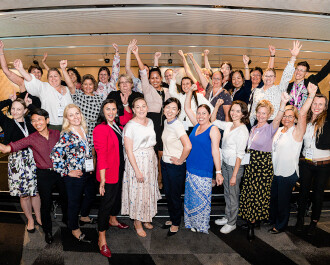

A diagnosis of breast cancer can have far reaching and debilitating psychological side effects, particularly in younger women. Even at the end of their treatment, many women maintain significant fears that their cancer will return – a phenomenon known as fear of cancer recurrence, or FCR.
Using funds from NBCF, Dr Thewes studied this psychological condition in young women with breast cancer to determine how widespread it is and its impact on the use of health care services and behaviour during follow-up care. Dr Thewes surveyed over 200 young women living with a diagnosis of breast cancer and found that over 70 per cent had significant levels of stress and anxiety about the possibility of their cancer recurring.
Having more fully identified the issue, Dr Thewes aims to develop tools, resources and support services that could be used as part of a treatment programme to help young breast cancer survivors deal with FCR and minimise its impact on their daily lives.
“My study found that 70% of these women reported levels of a fear of cancer recurrence high enough to cause anxiety, which interfered with their lives, while 25% reported it had an impact on their mood,” said Dr Thewes.
“We also found that the women responded to this anxiety by frequently examining themselves and reaching out for reassurance from their peers and GPs. However, what was concerning was that despite this, these women were avoiding having diagnostic tests, such as mammograms, ultrasounds or participating in formal cancer screening programmes.”
An intervention programme, developed by Dr Thewes and her team, is currently being trialled in collaboration with the Psycho-Oncology Cooperative Research Group of Australia. This programme has the potential to benefit the lives of a wide range of cancer survivors, including those with breast cancer.
“We hope the intervention will help cancer patients deal with their fears, reduce unnecessary medical examinations with associated health costs and ultimately, improve their quality of life,” said Dr Thewes.
Dr Alison Butt, Director, Research Investment at NBCF, said, “Understandably, there is usually a focus on dealing with the physical side of breast cancer, but the psychological side effects of a breast cancer diagnosis can be extremely debilitating and often last for many years after treatment has finished. Dr Thewes’s work to recognise this and develop interventions to deal with it will help make a real difference to women living with breast cancer and their families.”
More News Articles
View all News


